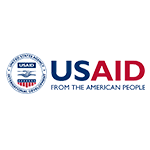Engaging South Sudanese Families in Menstrual Hygiene Management
HIGHLIGHTS
- Menstrual hygiene management (MHM) is essential for young girls to stay healthy, comfortable, and confident during their periods. In low-income countries, access to safe products, clean water, and private toilets ensures girls attend school, participate fully in daily life, and avoid infections or stigma.
- Parents and families play an important role in supporting their children’s safe MHM practices and ensuring girls are not shamed or bullied about getting their periods.
- We developed “Growing Together,” a solution that aims to strengthen communication between parents and their children about menstruation, menstrual health, and hygiene.
The Challenge
In South Sudan, stigma surrounding menstruation, lack of planning, and inadequate facilities leads to girls experiencing challenges in properly managing their menstrual hygiene. Engaging families in open conversation about menstruation is important to reduce stigma, improve parents’ knowledge about menstruation and MHM, and ensure they are prepared to discuss the topic with their children.
Traditional beliefs and practices often result in adolescent girls hiding their period and not receiving the appropriate guidance on what it means and how to manage it. Fathers, who are important household decision-makers, can influence the availability of resources for MHM, but rarely engage in conversations about menstruation.
Our Approach
Through the USAID-funded Breakthrough ACTION project and in collaboration with Momentum Integrated Health Resilience, we developed a solution, “Growing Together,” a companion to the family planning game “Together We Decide”. The game is designed to motivate and guide parents to support their adolescent and pre-adolescent daughters before and after the onset of menstruation, improve safe MHM practices, and encourage open family conversations about menstruation and menstrual health and hygiene.
To develop Growing Together, we engaged in participatory co-design process sessions with organizations working on MHM and related issues in South Sudan. Together, we developed an interactive game that helps position families to support their daughters to learn about menstrual health and hygiene.
Growing Together creates a safe space for families to learn about menstruation and MHM, and to explore ways they can support their daughters before and after the onset of menstruation. It emphasizes the role of supportive parents for both sons and daughters, recognizing how parents have supported their children throughout childhood and highlighting ways they can continue to guide their children as they enter a new phase of development.
Takeaway
Intentionally-designed, interactive games can provide a safe environment for families to learn about, reflect on, and discuss sensitive topics. By exploring different ways to be supportive within the game, families can identify practical strategies to help their daughters adopt healthy menstrual hygiene and management practices.
Interested in our work applying behavioral science to global health? Email health@ideas42.org or reach out to us on LinkedIn to join the conversation.



